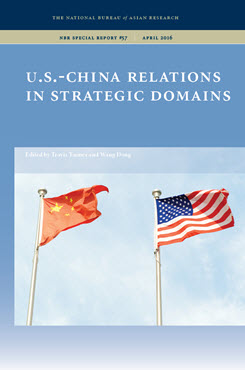U.S.-China Strategic Relations in Space
This essay examines the role of the space domain in the U.S.-China relationship, proposes cooperative initiatives to strengthen the relationship where U.S. and Chinese interests overlap, and recommends measures to mitigate tensions and crises where they diverge.
EXECUTIVE SUMMARY
MAIN ARGUMENT
The space domain will have a significant impact on the future of U.S.-China relations. Both countries see space as a domain that is critical to their national and economic security. The U.S. is focused on securing continued access to space and recapitalizing its space capabilities, while China is focused on developing its own capabilities in this domain. Although it is tempting to use the U.S.-Soviet competitive relationship in space as a model for the U.S.-China relationship, the analogy falls short due to the significant differences in context and the facts on the ground. At the very least, both the U.S. and China can take steps in the space domain to help stabilize their relationship and mitigate the worst-case scenario of armed conflict. But their efforts should not stop there: the ultimate goal should be to use space as a vehicle for positive engagement that helps shift the overall U.S.-China relationship toward cooperation and reduces the risk of conflict.
POLICY IMPLICATIONS
- Both the U.S. and China have strong national interests in contributing to multilateral efforts to bolster space governance and develop norms of responsible behavior in space. At the same time, they should look for ways to cooperate in civil and commercial space activities to create a positive element of their space relationship that offsets the military competition in this domain.
- If both countries develop operational offensive counter-space capabilities and a corresponding doctrine that relies on degrading the other’s space capabilities during a conflict, the urge to strike first could be a significant source of instability and escalation in the event of a crisis scenario.
- Improving space situational awareness capabilities and enacting other transparency and confidence-building measures for the development and deployment of dual-use space technology could help manage tensions and mitigate escalatory risks during a crisis.
Brian Weeden is the Technical Advisor at the Secure World Foundation in Washington, D.C.
Xiao He is an Assistant Research Fellow at the Institute of World Economics and Politics in the Chinese Academy of Social Sciences.


